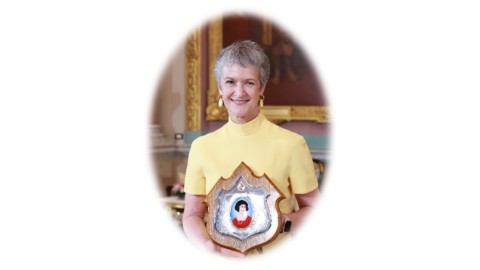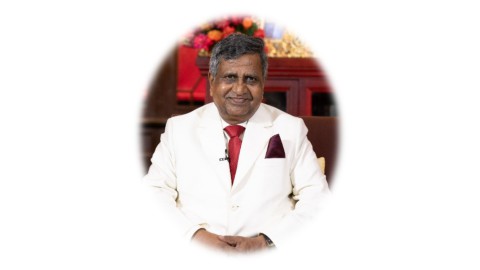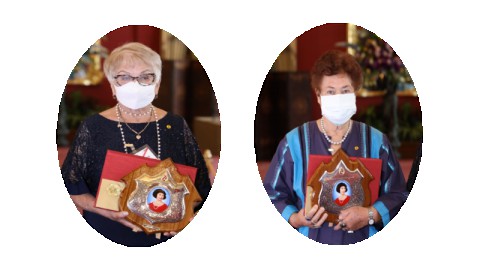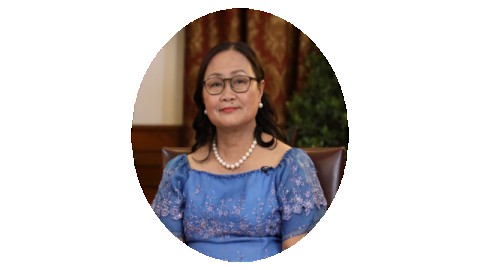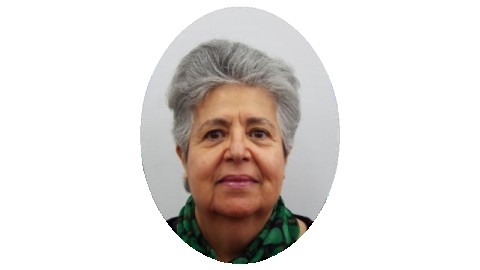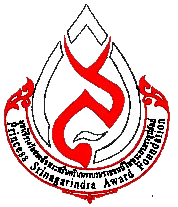
Princess Srinagarindra Award Foundation
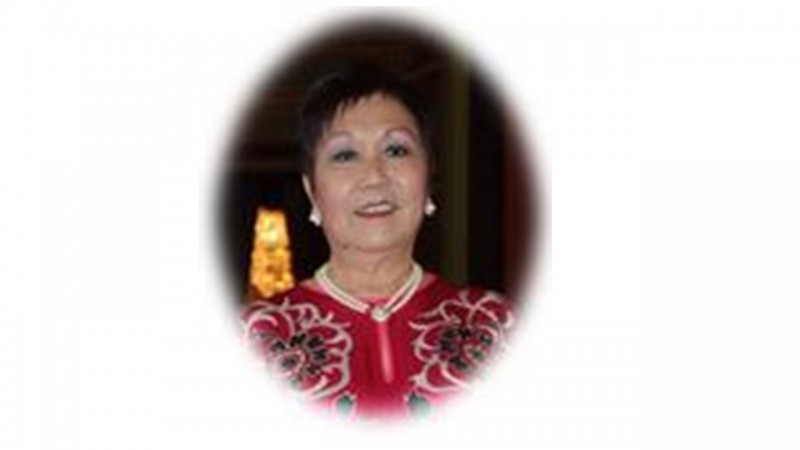
Miss Susie Kong Suet Har, Laureate2009
Ms. Susie Kong Suet Har, 65 years of age, obtained her State registered Nurse and operating Theatre from Guys Hospital, and Certified Midwife from Queen Charlotte and St. Thomas Hospital, United Kingdom and further her education at the University of Wales, where she obtained her Master in Healthcare Management and Diploma in personnel Management from The National Productivity Board, Singapore.
Ms. Kong is a dynamic nurse leader in Singapore and is well respected by many in the healthcare industry for her contributions to the development of nursing and the healthcare delivery system in Singapore. She is passionate about nursing and has dedicated much of her personal time to raise the profile of nursing in Singapore.She played a major role in the planning and management of a private hospital in Singapore by setting up the first open-heart surgery centre in the private sector and trained the first team of nurses in Cardiac Surgery. She assisted in the development of the hospital inventory and material management system. This 500 bedded hospital is now a well-known premier private hospital in South East Asia. In addition, she planned and set-up the first stand alone ambulatory centre in Singapore and worked as the Director for this centre and also managed a group of more than 20 general practitioner clinics located across the country and expanded this ambulatory care model in Yangon, Myanmar.
Ms Kong was a pioneer in the Quality Improvement Movement in Singapore and set up the first hospital Quality Assurance (QA) program. As the quality assurance concept in healthcare was new in Singapore then, she put in much effort to educate and convince the doctors and staff of the importance of safe quality patient care. Her patience and ability to persuade the doctors and staff to change their ways of practice resulted in the successful implementation of the QA program. The implementation was very timely when the Private Hospital and Medical Clinic Act which required every private hospital to have in place a QA program came into force. Ms Kong was much sought after by the other private hospitals to share her experience in setting up a hospital program. The structure and processes she set up also paved the way for the hospital to be accredited by the Joint Commission International in recent years.
Ms Kong was recruited by the World Health Organization to work as a part-time consultant on a model ward project in LAOS and Infection Control project in Vietnam. She conducted several workshops over a period of 4 years and shared her experiences in setting up of Quality Assurance and Infection Control programs with doctors and nurses in LAOS and Vietnam. There countries have made good progress in their implementation and have now introduced what they have learnt from her to the other provinces.
Singapore has a rapid ageing population and Ms Kong believed strongly that nurses could take a leadership role in the development of nursing services to the community. She set up a company to provide nursing services to the home – bound sick elderly and training for caregivers to care for the sick at home. Ms Kong is always look – up for ways to improve patient care and the constantly gave feedback to the relevant authorities on the issues and problems identified and followed up to assure that the issues have been addressed in the new policies. The book she co-authored “Wish I Knew-Caring for the Sick at Home” is widely used as a reference book by caregivers.
Ms Kong has held several senior management positions throughout her work career. She has made significant contributions to the development in nursing and healthcare in Singapore. She is very knowledgeable and is always willing to share her experiences and new ideas with other members of the healthcare them. Her expertise is very much valued by many healthcare organizations and has been invited to sit on several committees, such as: Singapore Health Advisory Council, Review Committee on National Health Policies, Resource Panel of Government Parliamentary Committee for Health, Singapore Nursing Board ect.
In the past, nursing in Singapore was very under-valued and nurses were categorized as skilled workers because they did not have university educations. Nursing leadership generally was weak because nurses were not prepared with the necessary basic foundation for leadership roles. Ms Kong envisioned that nurses should be recognized as a true profession and to achieve this vision, upgrading nursing education and strengthening nursing leadership is necessary. Thus, when Ms. Kong became the President of Singapore Nurses Association in 1988, she devoted her self to the development of nursing profession for the benefit to the health of people in Singapore and other countries as follows:
1.Uniting the Nurse. Ms Kong realized that it was very important that if nursing was to have a strong “Voice” nurse must be united. So, she set up the first Specialty Chapter, The operating Room Nurses Chapter Under The auspices of Singapore Nurses Association (SNA) and today there are 17 Specialty Nurses Chapters, all under one organization. The consequence of these specialty chapters are the building nurses’ capacity to improve the quality of services to people they served.
2.Increase Visibility of Singapore Nurses Association. Ms Kong started developing her local network with hospitals, other health care organizations and very importantly, the woman organization in Singapore. She engaged the media whenever there was an opportunely and provided them with information on nursing. She also developed good rapport with the journalists and provided information on nursing through the association. At the regional and international level, Ms Kong tried to attend as many meetings as her work schedule allowed. In there meetings Ms Kong had the opportunity to meet nursing colleagues and leaders around the globes to learn various strategies form them and to draw assistance/support to the nurse in Singapore. Today SNA is well respected and acknowledged as the “voice” for nursing in Singapore
3. Strategies to Upgrade Nursing Education in Singapore. Nursing education in Singapore was at a certificate level and moved to the diploma level in 1992. The relevant authorities were not in favor of upgrading nursing education to a baccalaureate level as it would increase healthcare cost.
For almost two decades, Ms Kong advocated strongly for a local undergraduate degree program to be set up at one of the local universities. She used every opportunity she had over the years and spoke with a few Health Ministers on the need to upgrade nursing education. Ms. Kong pursued the issue persistently and with the support from her journalist friends, from the women organizations, the women Members of Parliament were very supportive and empathized with the nurses. They surfaced the same issue on nurses’ behalf during Parliament sessions for several years. Finally, in 2006, the first undergraduate nursing degree program was set up at the National University of Singapore.
In the meantime, Ms Kong explored other avenues of giving nurses the opportunity to upgrade themselves without having to leave home. She collaborated with La Trobe University, Melbourne, Australia to conduct a bridging program, through distance learning. Initially, Ms Kong met with a lot of resistance from hospitals and many of them did not recognize the degree awarded by the university as they felt that studies through distance learning was not accredited. After several years of lengthy discussions, the Bachelor of Nursing program was accredited by the Singapore Nursing Board. The program which has been running for 11 years is now over subscribed and a total of about 700 nurses have graduated from this program.
4. Chairman of Singapore Nursing Board. Singapore has a Nurses and Midwives Act which was passed by Parliament in 1975. The Act stipulated that Director of Medical Services shall be the Chairman of the Singapore Nursing Board. Ms Kong felt strongly that the Chairman of the Singapore Nursing Board should be a nurse, instead of a doctor and nurses should be allowed to manage their own professional affairs. Again, Ms Kong enlisted the help of the women Members of Parliament to surface this issue in Parliament and Health Minister who is very supportive of nurses decided to amend the Nurses and Midwives Act and since 2006, and nurse is the Chair of the Singapore Nursing Board.
5. Strengthening Nursing Leadership. Nursing leadership has been very weak in Singapore and there were very few nurses in leadership positions. There was an urgent need for nursing leadership to be strengthened if nurses were to make significant contributions to the healthcare system. Ms. Kong met Ms. Sally Shaw at the ICN Congress in Vancouver and expressed this concern to her. With her help through the International Council of Nurses (ICN), Ms Kong organized a Strategic Planning Workshop and 22 nurse leaders worked together and developed a vision for nursing in Singapore “Nursing will be an autonomous and united profession, recognized and valued for its leadership in providing quality care and as a key player in influencing policy and decisions”.
In 2000, ICN conducted the Leadership-for Change (LFC) program in Singapore. More than 40 senior nurses from all the major hospitals and healthcare institutions participated in this 18 month program. The action-learning methodology of this program and the team projects gave the participants opportunities to practice the skills learnt and most of the participants have been promoted to leadership positions. Ms Kong biggest challenge as the main coordinator of the program was to arrange for the 40 senior nurses, all with conflicting work schedules to meet regularly together.
In 2004, the Singapore Nurses Association (SNA) was licensed by ICN as a provider organization to conduct the LFC program. Strengthening nursing leadership is a continuous process and the program is now targeting at the younger nurses to prepare them to take over the leadership roles.
In 2005, Ms. Kong was elected to be the President of the Commonwealth Nurses Federation, the first Singapore nurse to hold this position Most of the Commonwealth countries are developing or under-developed and finding funds for projects is a great challenge. Ms Kong working with some of the member countries to develop projects on strengthening nursing leadership skills and strengthening nurses and midwives capacity in caring for HIV/AIDS.
Ms Kong has brought a significant contribution to nursing and to health care system at nationally and International level. The committee of the Princess Srinagraindra Award Foundation under the Royal Patronage has come to the final resolution to award Ms. Susie Kong Suet Har the Princess Srinagarindra Award of the year 2009.
Ms. Susie Kong Suet Har, 65 years of age, obtained her State registered Nurse and operating Theatre from Guys Hospital, and Certified Midwife from Queen Charlotte and St. Thomas Hospital, United Kingdom and further her education at the University of Wales, where she obtained her Master in Healthcare Management and Diploma in personnel Management from The National Productivity Board, Singapore.
Ms. Kong is a dynamic nurse leader in Singapore and is well respected by many in the healthcare industry for her contributions to the development of nursing and the healthcare delivery system in Singapore. She is passionate about nursing and has dedicated much of her personal time to raise the profile of nursing in Singapore.She played a major role in the planning and management of a private hospital in Singapore by setting up the first open-heart surgery centre in the private sector and trained the first team of nurses in Cardiac Surgery. She assisted in the development of the hospital inventory and material management system. This 500 bedded hospital is now a well-known premier private hospital in South East Asia. In addition, she planned and set-up the first stand alone ambulatory centre in Singapore and worked as the Director for this centre and also managed a group of more than 20 general practitioner clinics located across the country and expanded this ambulatory care model in Yangon, Myanmar.
Ms Kong was a pioneer in the Quality Improvement Movement in Singapore and set up the first hospital Quality Assurance (QA) program. As the quality assurance concept in healthcare was new in Singapore then, she put in much effort to educate and convince the doctors and staff of the importance of safe quality patient care. Her patience and ability to persuade the doctors and staff to change their ways of practice resulted in the successful implementation of the QA program. The implementation was very timely when the Private Hospital and Medical Clinic Act which required every private hospital to have in place a QA program came into force. Ms Kong was much sought after by the other private hospitals to share her experience in setting up a hospital program. The structure and processes she set up also paved the way for the hospital to be accredited by the Joint Commission International in recent years.
Ms Kong was recruited by the World Health Organization to work as a part-time consultant on a model ward project in LAOS and Infection Control project in Vietnam. She conducted several workshops over a period of 4 years and shared her experiences in setting up of Quality Assurance and Infection Control programs with doctors and nurses in LAOS and Vietnam. There countries have made good progress in their implementation and have now introduced what they have learnt from her to the other provinces.
Singapore has a rapid ageing population and Ms Kong believed strongly that nurses could take a leadership role in the development of nursing services to the community. She set up a company to provide nursing services to the home – bound sick elderly and training for caregivers to care for the sick at home. Ms Kong is always look – up for ways to improve patient care and the constantly gave feedback to the relevant authorities on the issues and problems identified and followed up to assure that the issues have been addressed in the new policies. The book she co-authored “Wish I Knew-Caring for the Sick at Home” is widely used as a reference book by caregivers.
Ms Kong has held several senior management positions throughout her work career. She has made significant contributions to the development in nursing and healthcare in Singapore. She is very knowledgeable and is always willing to share her experiences and new ideas with other members of the healthcare them. Her expertise is very much valued by many healthcare organizations and has been invited to sit on several committees, such as: Singapore Health Advisory Council, Review Committee on National Health Policies, Resource Panel of Government Parliamentary Committee for Health, Singapore Nursing Board ect.
In the past, nursing in Singapore was very under-valued and nurses were categorized as skilled workers because they did not have university educations. Nursing leadership generally was weak because nurses were not prepared with the necessary basic foundation for leadership roles. Ms Kong envisioned that nurses should be recognized as a true profession and to achieve this vision, upgrading nursing education and strengthening nursing leadership is necessary. Thus, when Ms. Kong became the President of Singapore Nurses Association in 1988, she devoted her self to the development of nursing profession for the benefit to the health of people in Singapore and other countries as follows:
1.Uniting the Nurse. Ms Kong realized that it was very important that if nursing was to have a strong “Voice” nurse must be united. So, she set up the first Specialty Chapter, The operating Room Nurses Chapter Under The auspices of Singapore Nurses Association (SNA) and today there are 17 Specialty Nurses Chapters, all under one organization. The consequence of these specialty chapters are the building nurses’ capacity to improve the quality of services to people they served.
2.Increase Visibility of Singapore Nurses Association. Ms Kong started developing her local network with hospitals, other health care organizations and very importantly, the woman organization in Singapore. She engaged the media whenever there was an opportunely and provided them with information on nursing. She also developed good rapport with the journalists and provided information on nursing through the association. At the regional and international level, Ms Kong tried to attend as many meetings as her work schedule allowed. In there meetings Ms Kong had the opportunity to meet nursing colleagues and leaders around the globes to learn various strategies form them and to draw assistance/support to the nurse in Singapore. Today SNA is well respected and acknowledged as the “voice” for nursing in Singapore
3. Strategies to Upgrade Nursing Education in Singapore. Nursing education in Singapore was at a certificate level and moved to the diploma level in 1992. The relevant authorities were not in favor of upgrading nursing education to a baccalaureate level as it would increase healthcare cost.
For almost two decades, Ms Kong advocated strongly for a local undergraduate degree program to be set up at one of the local universities. She used every opportunity she had over the years and spoke with a few Health Ministers on the need to upgrade nursing education. Ms. Kong pursued the issue persistently and with the support from her journalist friends, from the women organizations, the women Members of Parliament were very supportive and empathized with the nurses. They surfaced the same issue on nurses’ behalf during Parliament sessions for several years. Finally, in 2006, the first undergraduate nursing degree program was set up at the National University of Singapore.
In the meantime, Ms Kong explored other avenues of giving nurses the opportunity to upgrade themselves without having to leave home. She collaborated with La Trobe University, Melbourne, Australia to conduct a bridging program, through distance learning. Initially, Ms Kong met with a lot of resistance from hospitals and many of them did not recognize the degree awarded by the university as they felt that studies through distance learning was not accredited. After several years of lengthy discussions, the Bachelor of Nursing program was accredited by the Singapore Nursing Board. The program which has been running for 11 years is now over subscribed and a total of about 700 nurses have graduated from this program.
4. Chairman of Singapore Nursing Board. Singapore has a Nurses and Midwives Act which was passed by Parliament in 1975. The Act stipulated that Director of Medical Services shall be the Chairman of the Singapore Nursing Board. Ms Kong felt strongly that the Chairman of the Singapore Nursing Board should be a nurse, instead of a doctor and nurses should be allowed to manage their own professional affairs. Again, Ms Kong enlisted the help of the women Members of Parliament to surface this issue in Parliament and Health Minister who is very supportive of nurses decided to amend the Nurses and Midwives Act and since 2006, and nurse is the Chair of the Singapore Nursing Board.
5. Strengthening Nursing Leadership. Nursing leadership has been very weak in Singapore and there were very few nurses in leadership positions. There was an urgent need for nursing leadership to be strengthened if nurses were to make significant contributions to the healthcare system. Ms. Kong met Ms. Sally Shaw at the ICN Congress in Vancouver and expressed this concern to her. With her help through the International Council of Nurses (ICN), Ms Kong organized a Strategic Planning Workshop and 22 nurse leaders worked together and developed a vision for nursing in Singapore “Nursing will be an autonomous and united profession, recognized and valued for its leadership in providing quality care and as a key player in influencing policy and decisions”.
In 2000, ICN conducted the Leadership-for Change (LFC) program in Singapore. More than 40 senior nurses from all the major hospitals and healthcare institutions participated in this 18 month program. The action-learning methodology of this program and the team projects gave the participants opportunities to practice the skills learnt and most of the participants have been promoted to leadership positions. Ms Kong biggest challenge as the main coordinator of the program was to arrange for the 40 senior nurses, all with conflicting work schedules to meet regularly together.
In 2004, the Singapore Nurses Association (SNA) was licensed by ICN as a provider organization to conduct the LFC program. Strengthening nursing leadership is a continuous process and the program is now targeting at the younger nurses to prepare them to take over the leadership roles.
In 2005, Ms. Kong was elected to be the President of the Commonwealth Nurses Federation, the first Singapore nurse to hold this position Most of the Commonwealth countries are developing or under-developed and finding funds for projects is a great challenge. Ms Kong working with some of the member countries to develop projects on strengthening nursing leadership skills and strengthening nurses and midwives capacity in caring for HIV/AIDS.
Ms Kong has brought a significant contribution to nursing and to health care system at nationally and International level. The committee of the Princess Srinagraindra Award Foundation under the Royal Patronage has come to the final resolution to award Ms. Susie Kong Suet Har the Princess Srinagarindra Award of the year 2009.
